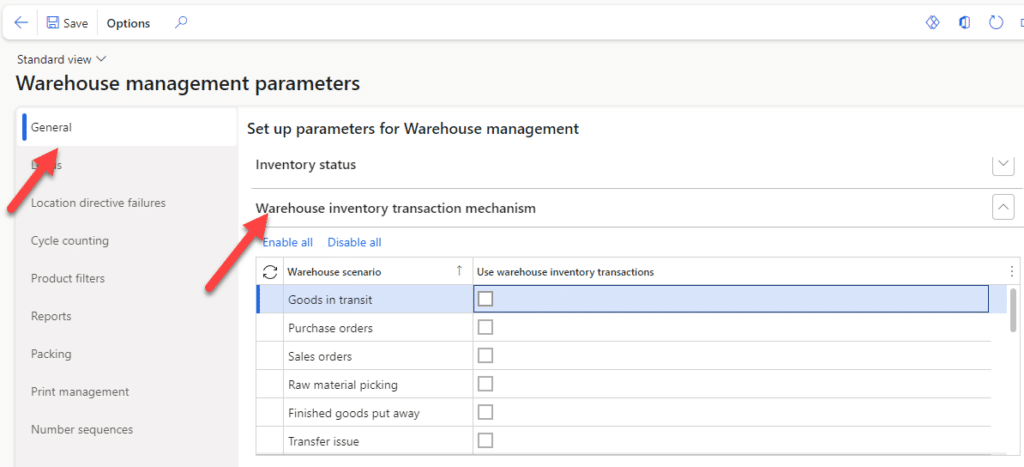How Changes to Warehouse-Specific Inventory Transactions in Dynamics 365 Supply Chain Can Boost Efficiency
Microsoft Dynamics 365 Supply Chain is stepping up its game with a new feature that will further optimize the way warehouses manage inventory transactions.
In this blog, we will look at the advantages of the new warehouse-specific inventory transactions and how they will positively impact your warehouse operations.
Leverage the Evolution of Warehouse Transactions in Dynamics 365 Supply Change Management
In a recent update to Dynamics 365 Supply Chain, Microsoft introduced warehouse-specific inventory transactions, which are different from traditional inventory transactions in that they are purpose-built for optimizing warehouse operations. This improves the overall performance and efficiency of your system. These specific transactions offer several key advantages over conventional inventory transactions and can be customized to fit your business's unique warehouse scenarios. Some of the main benefits include:
- Handling Item Sets - One significant enhancement is the ability to operate on sets of items with varying serial or batch numbers. This feature encourages you to recycle item sets, eliminating the need to record redundant information multiple times. This not only saves time but also streamlines data management.
- Minimal Financial Impact - Warehouse transactions are solely dedicated to warehouse operations, without any financial implications. Consequently, this reduces the complexity of database fields, indexes, and validations, leading to a more efficient system.
- Optimized for Performance - This new feature ensures your warehouse transactions are frequently archived to keep the transactions table remains compact. This enables the system to implement distinct data models for active and completed transactions. Active transactions are optimized for quick inserts, crucial for smooth mobile device operations, while completed transactions are optimized for seamless querying.
Save Time and Employee Resources
Microsoft says it made these changes after a deep analysis of system performance and found a significant portion of Warehouse Management operation execution time was spent within the inventory system. With important modules such as the Warehouse Management System reliant on the inventory system, optimizing it solely for warehouse needs was a challenge for many businesses. Warehouse transactions allow the warehouse system to operate independently from the inventory system and enhance efficiency.
Another aspect of improvement is the way the system handles items. The introduction of “item sets” tackled the challenge of execution time being tied to the number of items involved. Item sets are segments of items with specific dimensions and quantities, enhancing warehouse operations by reducing their dependency on the sheer volume of items.
Enhance the User Experience with an Easy Transition to Warehouse-specific
From a user’s perspective, the transition to warehouse-specific inventory transactions is easy. Users who work in the Warehouse Management System will notice a new form to view transactions that show transactions related to the sales order and transactions related to the warehouse work created for that order. Meanwhile, the conventional inventory transaction form will show only the source transaction for the specific warehouse work.
How to Set up Warehouse-specific Inventory Transactions
If your version of Dynamics 365 Supply Chain is version 10.0.32 or better, you can enable warehouse-specific inventory transactions in the Feature management workspace and activate the WHSWarehouseinventoryTransactionsFeature flight.
*Note, as of version 10.0.36, this feature is now mandatory and cannot be turned off
Once you do this, you can head to the Warehouse Management parameters page and select the warehouse scenarios you want to use in this new feature.
Want to Learn More About Optimizing Your Warehouse Processes?
Get in touch with Stoneridge Software! Our team of Dynamics 365 Finance and Operations and Dynamics 365 Supply Chain experts can help you implement this feature and use it to its fullest extent.
Under the terms of this license, you are authorized to share and redistribute the content across various mediums, subject to adherence to the specified conditions: you must provide proper attribution to Stoneridge as the original creator in a manner that does not imply their endorsement of your use, the material is to be utilized solely for non-commercial purposes, and alterations, modifications, or derivative works based on the original material are strictly prohibited.
Responsibility rests with the licensee to ensure that their use of the material does not violate any other rights.







